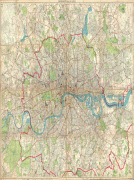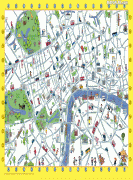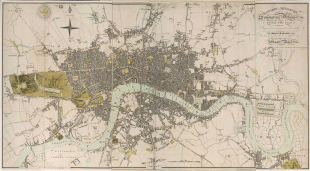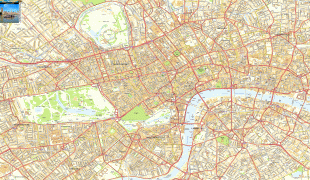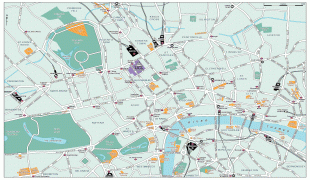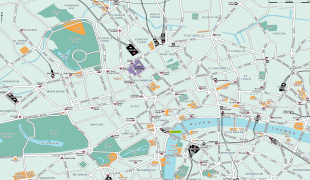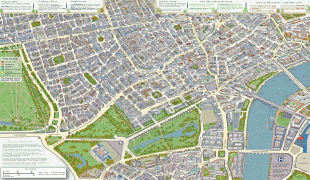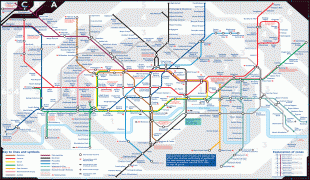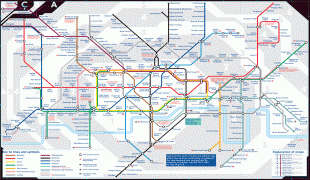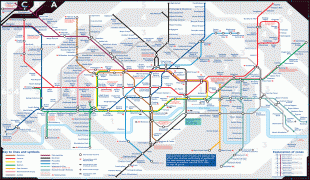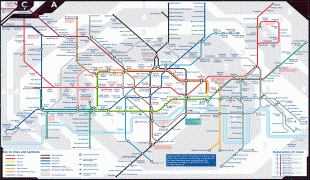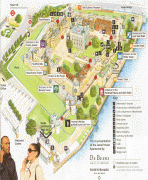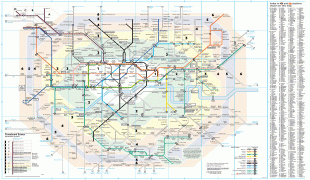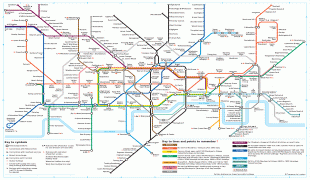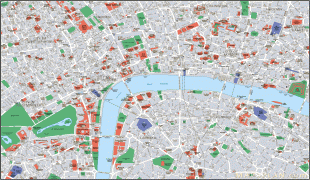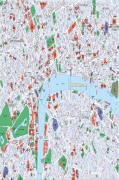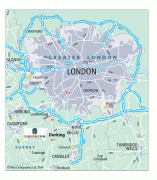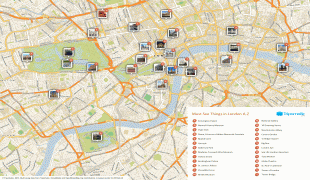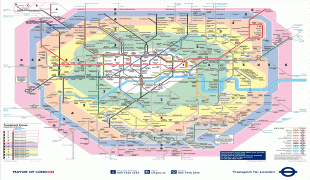London
As one of the world's major global cities, London exerts a strong influence on its arts, entertainment, fashion, commerce and finance, education, health care, media, science and technology, tourism, and transport and communications. Its GDP (€801.66 billion in 2017) makes it the largest urban economy in Europe, and it is one of the major financial centres in the world. With Europe's largest concentration of higher education institutions, it is home to some of the highest-ranked academic institutions in the world—Imperial College London in natural and applied sciences, the London School of Economics in social sciences, and the comprehensive University College London. London is the most visited city in Europe and has the busiest city airport system in the world. The London Underground is the oldest rapid transit system in the world.
London's diverse cultures encompass over 300 languages. The mid-2018 population of Greater London of about 9 million made it Europe's third-most populous city, accounting for 13.4% of the population of the United Kingdom and over 16% of the population of England. The Greater London Built-up Area is the fourth-most populous in Europe with about 9.8 million inhabitants at the 2011 census. The London metropolitan area is the third-most populous in Europe with about 14 million inhabitants in 2016, granting London the status of a megacity.
London has four World Heritage Sites: the Tower of London; Kew Gardens; the combined Palace of Westminster, Westminster Abbey, and St Margaret's Church; and also the historic settlement in Greenwich, where the Royal Observatory, Greenwich defines the prime meridian (0° longitude) and Greenwich Mean Time. Other landmarks include Buckingham Palace, the London Eye, Piccadilly Circus, St Paul's Cathedral, Tower Bridge, and Trafalgar Square. London has many museums, galleries, libraries and cultural venues, including the British Museum, National Gallery, Natural History Museum, Tate Modern, British Library, and numerous West End theatres. Important sporting events held in London include the FA Cup Final (held annually at Wembley Stadium), Wimbledon Tennis Championships and the London Marathon. In 2012, London became the first city to host three Summer Olympic Games.
London is an ancient name, already attested in the first century AD, usually in the Latinised form Londinium; for example, handwritten Roman tablets recovered in the city originating from AD 65/70–80 include the word Londinio ('in London').
Over the years, the name has attracted many mythically based explanations. The earliest attested appears in Geoffrey of Monmouth's Historia Regum Britanniae, written around 1136.
Modern scientific analyses of the name must account for the origins of the different forms found in early sources: Latin (usually Londinium), Old English (usually Lunden), and Welsh (usually Llundein), with reference to the known developments over time of sounds in those different languages. It is agreed that the name came into these languages from Common Brythonic; recent work tends to reconstruct the lost Celtic form of the name as *Londonjon or something similar. This was adapted into Latin as Londinium and borrowed into Old English.
The toponymy of the Common Brythonic form is debated. Prominent was Richard Coates' 1998 argument that it derived from pre-Celtic Old European *, meaning "river too wide to ford". Coates suggested this was a name given to the part of the River Thames that flows through London, from which the settlement gained the Celtic form of its name, *Lowonidonjon. However, most work has accepted a plain Celtic origin. Recent studies favour an explanation of a Celtic derivative of a Proto-Indo-European root * ('sink, cause to sink'), combined with the Celtic suffix *-injo- or *-onjo- (used to form place-names). Peter Schrijver has specifically suggested that the name originally meant "place that floods (periodically, tidally)".
Until 1889, the name "London" applied officially only to the City of London, but since then it has also referred to the County of London and to Greater London.
In writing, "London" is occasionally contracted to "LDN". Such usage originated in SMS language and often appears in a social media user profile, suffixing an alias or handle.
Map - London
Map
Country - United_Kingdom
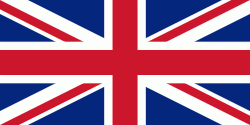 |
 |
| Flag of the United Kingdom | |
The United Kingdom has evolved from a series of annexations, unions and separations of constituent countries over several hundred years. The Treaty of Union between the Kingdom of England (which included Wales, annexed in 1542) and the Kingdom of Scotland in 1707 formed the Kingdom of Great Britain. Its union in 1801 with the Kingdom of Ireland created the United Kingdom of Great Britain and Ireland. Most of Ireland seceded from the UK in 1922, leaving the present United Kingdom of Great Britain and Northern Ireland, which formally adopted that name in 1927. The nearby Isle of Man, Guernsey and Jersey are not part of the UK, being Crown Dependencies with the British Government responsible for defence and international representation. There are also 14 British Overseas Territories, the last remnants of the British Empire which, at its height in the 1920s, encompassed almost a quarter of the world's landmass and a third of the world's population, and was the largest empire in history. British influence can be observed in the language, culture and the legal and political systems of many of its former colonies.
Currency / Language
| ISO | Currency | Symbol | Significant figures |
|---|---|---|---|
| GBP | Pound sterling | £ | 2 |
| ISO | Language |
|---|---|
| EN | English language |
| GD | Gaelic language |
| CY | Welsh language |






